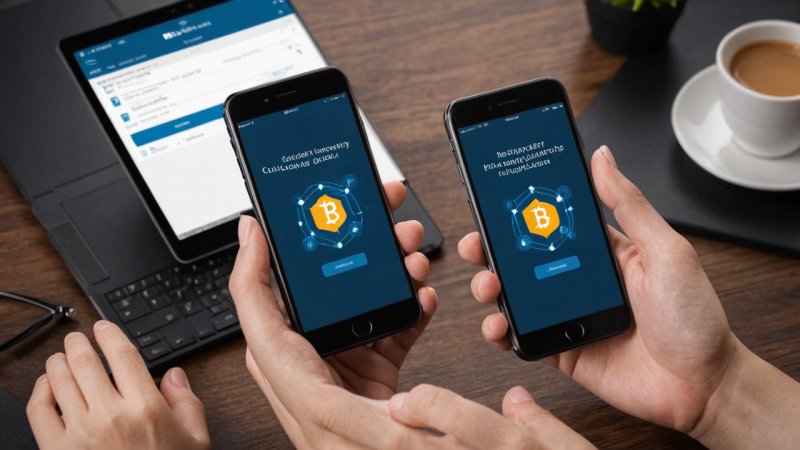In a rapidly evolving digital landscape, customer loyalty programs are becoming essential for businesses aiming to retain customers and foster deeper relationships. Traditional loyalty programs often face challenges such as data security, transparency, and customer engagement. Blockchain technology has emerged as a transformative solution, providing a decentralized, secure, and transparent environment that enhances the effectiveness of loyalty programs. This article will explore how blockchain can revolutionize customer loyalty programs by addressing common issues, providing implementation examples, and examining case studies.
Understanding Customer Loyalty Programs
Customer loyalty programs are structured marketing efforts designed to encourage customers to continue buying products or services from a particular brand. These programs typically offer rewards such as points, discounts, or exclusive offers in exchange for repeated purchases or brand engagement. However, traditional loyalty programs often suffer from several limitations, including:
- Limited Interoperability: Many loyalty programs operate in silos, making it difficult for customers to transfer points between different programs.
- Data Privacy Concerns: Customers are often wary of sharing their personal information due to data breaches and privacy violations.
- Low Engagement Rates: Many customers forget to redeem their rewards, leading to decreased engagement and loyalty.
- Fraud and Abuse: Traditional systems are susceptible to fraud, leading to losses for businesses.
How Blockchain Works
Blockchain is a decentralized digital ledger technology that records transactions across many computers. Its key features include:
- Decentralization: No central authority controls the blockchain, reducing the risk of fraud and manipulation.
- Transparency: Transactions are visible to all participants, fostering trust and accountability.
- Immutability: Once recorded, data cannot be altered, ensuring data integrity.
- Smart Contracts: These self-executing contracts with the terms of the agreement directly written into code can automate processes and reduce operational costs.
Enhancing Customer Loyalty Programs with Blockchain
Integrating blockchain into customer loyalty programs offers several advantages:
1. Improved Data Security and Privacy
Blockchain technology uses cryptographic techniques to secure data, ensuring that customer information is protected from unauthorized access. Customers can have more control over their data, deciding what information to share and with whom. This enhances trust and encourages participation in loyalty programs.
2. Interoperability Between Programs
Blockchain enables different loyalty programs to interact with each other. Customers can earn and redeem points across multiple brands, making loyalty programs more attractive. This interoperability can increase customer engagement and retention, as customers are more likely to participate in programs that offer flexibility.
3. Enhanced Customer Engagement
By utilizing gamification and personalized rewards, blockchain can enhance customer engagement. Smart contracts can automate reward distribution based on specific customer actions, creating a more dynamic and interactive experience. For example, customers could receive tokens for sharing feedback or participating in surveys, further incentivizing engagement.
4. Prevention of Fraud
Blockchain's immutable nature makes it extremely difficult for fraudsters to manipulate loyalty points or rewards. Each transaction is recorded securely, providing an auditable trail that can help businesses identify and prevent fraudulent activities. This can lead to significant cost savings and increased trust from customers.
Implementation Examples
Several companies are already leveraging blockchain technology to enhance their customer loyalty programs:
Case Study 1: Starbucks
Starbucks has been exploring blockchain technology to improve its loyalty program. By implementing a blockchain-based system, customers could track their rewards and transactions transparently while ensuring data security. This initiative is aimed at enhancing customer trust and increasing engagement.
Case Study 2: Loyyal
Loyyal is a blockchain-based loyalty platform that allows companies to create and manage their loyalty programs on a single platform. By using blockchain, Loyyal enables interoperability between different loyalty programs, allowing customers to earn and redeem points across various brands seamlessly. This model has attracted several partners, enhancing the overall value proposition for customers.
Case Study 3: Singapore Airlines
Singapore Airlines launched its loyalty program, KrisFlyer, on a blockchain platform to enhance customer experience. The program allows customers to earn and redeem miles not just for flights but also for everyday purchases through partner merchants. This approach increases engagement and offers customers more flexibility, making the program more attractive.
Challenges and Considerations
While blockchain offers significant advantages for customer loyalty programs, several challenges need to be addressed:
- Scalability: As customer adoption grows, ensuring that the blockchain can handle a high volume of transactions is crucial.
- Regulatory Compliance: Companies must navigate legal and regulatory frameworks related to data privacy and financial transactions.
- Technology Adoption: Organizations may face resistance to adopting new technologies, requiring comprehensive training and education for employees and customers.
Conclusion
Blockchain technology has the potential to transform customer loyalty programs by addressing key challenges such as data security, interoperability, and customer engagement. By providing a transparent, secure, and decentralized environment, blockchain can enhance trust and foster more robust relationships between brands and customers. As companies continue to explore and implement blockchain solutions, it is crucial to address the challenges and ensure that these innovative programs meet customer expectations. The future of customer loyalty programs is bright, with blockchain at the forefront of this evolution.






